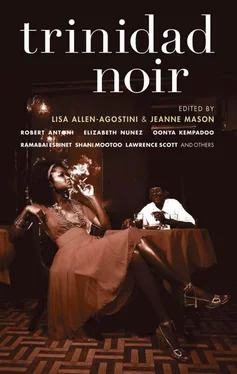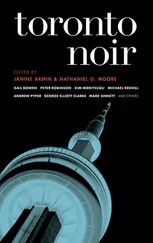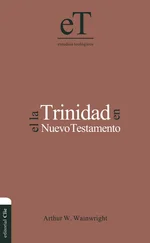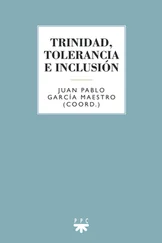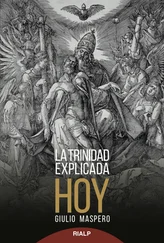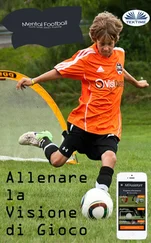Lisa Allen-Agostini - Trinidad Noir
Здесь есть возможность читать онлайн «Lisa Allen-Agostini - Trinidad Noir» весь текст электронной книги совершенно бесплатно (целиком полную версию без сокращений). В некоторых случаях можно слушать аудио, скачать через торрент в формате fb2 и присутствует краткое содержание. Город: New York, Год выпуска: 2008, ISBN: 2008, Издательство: Akashic Books, Жанр: Детектив, на английском языке. Описание произведения, (предисловие) а так же отзывы посетителей доступны на портале библиотеки ЛибКат.
- Название:Trinidad Noir
- Автор:
- Издательство:Akashic Books
- Жанр:
- Год:2008
- Город:New York
- ISBN:978-1-933354-55-2
- Рейтинг книги:4 / 5. Голосов: 1
-
Избранное:Добавить в избранное
- Отзывы:
-
Ваша оценка:
- 80
- 1
- 2
- 3
- 4
- 5
Trinidad Noir: краткое содержание, описание и аннотация
Предлагаем к чтению аннотацию, описание, краткое содержание или предисловие (зависит от того, что написал сам автор книги «Trinidad Noir»). Если вы не нашли необходимую информацию о книге — напишите в комментариях, мы постараемся отыскать её.
Trinidad Noir — читать онлайн бесплатно полную книгу (весь текст) целиком
Ниже представлен текст книги, разбитый по страницам. Система сохранения места последней прочитанной страницы, позволяет с удобством читать онлайн бесплатно книгу «Trinidad Noir», без необходимости каждый раз заново искать на чём Вы остановились. Поставьте закладку, и сможете в любой момент перейти на страницу, на которой закончили чтение.
Интервал:
Закладка:
That Sunday, a Sunday like no other Sunday, Meera Meera Johna returned to the neighbor’s bed on the edge of which she sat, a perfect chrysanthemum-and-leaf-of-milkweed ice-cream sundae wilting, and, still unnoticed, she studied her father, his cacao-colored skin richly, steamily aglow, and she regarded the woman beneath him, hers paler than white, whose groaning Meera Meera Johna came to understand declared, Yes, uhuh uhuh, yes , her eyes shut, torso arched, neatly pinned by her hands and feet atop a velvet coverlet the deep saffron color of pollen, her hair held tightly in John Lucknow’s fist. An interesting situation, Meera Meera Johna pondered, the way Isabella stretched and pushed her pelvis upward, mothlike, and her father like a wasp atop, his pelvis just barely flicking the moth’s.
That very night, when the Mansing family sat at the dinner table, at precisely the time Meera Meera Johna finished posing the question to her father why that afternoon when Isabella Tatiana was groaning, he continued to perch so long on top of her, Matilda Jasodhra, a pale, frail woman — as yet unwinged — who looked as if she had long been chidden by the sun, halted her gleaming brass fork in mid-flight toward her mouth and took studious note of the cube of rare agouti meat — which she herself had barbecued — skewered on its prongs. She brought her fork, agouti untouched, to rest on the brim of her fine bone china plate, an act accorded the precision and delicacy of one experiencing an awakening. She just as carefully, thoughtfully, lifted the sweating stemmed water glass, and sipped from it ice-cold water. Matilda Jasodrha Mansing, once she had set the goblet back on the table, shot up her nose and chin to the ceiling with less delicacy now, and with a flamboyant flick of her head determined that she, she had had, she had had absolutely enough. Matilda Jasodhra thawed back to life, and John was spared having to answer Meera Meera Johna’s burning question when his wife belted out, “We will have a party. A big, big party with music. Lots and lots of music. Live. Cha cha cha. Cha cha cha. I shall oversee the entire thing myself, and everybody shall come to it. Including That Tatiana Woman.” Matilda Jasodhra took it into her hands that day to grow her very own wings.
The day of the party, just outside the front entrance to the house, the yardman had been clearing away the unsavory evidence of day-to-day yard existences — brown fallen leaves, weeds, a wind-borne candy wrapper — when he came upon a corner that was infested with snakes. He was, at the moment the neighborhood children led by Meera Meera Johna appeared, ramming a broomstick straight down into a hole. He had anesthetized the snakes with chloroform, a bottle of it given to him for this very purpose by his butterfly-collecting jeweler boss, and was now shoving, shoving, shoving into the hole one of these garden snakes that had minutes before been a smooth, brilliant green thing the length of a man and a bit, sunning itself on a hibiscus shrub, but was now rumpled into numerous odd angles that oozed and squirted liquids in tones of browns and reds. The gardener was shoving the snake into the hole, killing it again, and again, just to make sure, he explained when they said to him, voices full of awe, “But the thing dead already, why you beating it so? It coulda make a good skipping rope if you hadn’t a mash it up so.” He looked up at them, his eyes — what should normally have been the whites of his eyes, red-red-red, and the pupils, black-black-black — like jumbie beads, the children whispered among themselves later. They watched him move from hole to hole until he had tucked away five garden snakes in all. In the childrens’ peripheral vision shuffled the less arresting single-file procession of fifty women marching up the street, approaching the servant’s gate at the back of the Mansing house. They were all dressed exactly alike, in white servant shirts with rounded frilly collars, and black narrow knee-length skirts, black stockings, and black closed-up shoes. Each pushed a two-tiered trolley laden with dishes on which courses of catered food were artfully splayed.
“Meera Meera Mansing, inside now. Time to dress. It’s late and getting later by the minute. Come now.” Her mother’s voice shot through the house, taut yet euphoric, from the bedroom section down to the front garden, and Meera Meera Johna responded in a flash, leaving her friends to the hands of the yardman.
Just before seven o’clock, from the front of the house an infectious Cha cha cha, Cha cha cha, Cha cha cha wafted up to the bedroom section. Meera Meera Johna lifted her skirt, tugged at the scratchy crinoline beneath, twisted it, and tugged some more. Her mother snapped at her, Stop lifting your skirt . Her scalp hurt too, her hair having been combed back velvet smooth into a ponytail. Meera Meera Johna raised her eyebrows and wiggled her ears in an attempt to weaken the grip. Her mother was leading her down to the party when they both saw the light coming from under the door of John Lucknow’s studio. Forever alert to his abundant furtivenesses — for what else could one call it? — Matilda Jasodhra yanked her daughter along and they both pressed their ears to the door. They heard nothing save for the muted vibration of Cha cha cha, Cha cha cha . Matilda Jasodhra tried the knob of the door. It was locked. She banged, and John Lucknow’s voice, it was indeed his, responded sharply, What? Matilda squealed at him to open the door. He did. That dreadful sweet scent of chloroform assaulted her and Meera Meera Johna, and she wondered, as she always did, why it hadn’t as yet done him in. He held in his hands his jeweler’s glass. Working? she wondered. Working right up to the last minute before the party? She glanced — not so discreetly, so perhaps she gazed rather than glanced — throughout the room, vision gaining the amorphous properties of air that allowed it to float and bend so that she could see around to the back of the desk and behind curtains, and seeing that he was alone, she breathed a sigh of relief. He too sighed. Then she saw a tray of butterflies on his desk. Leave those damned butterflies alone, why don’t you, Matilda Jasodhra whispered between her teeth, and come. Our guests will arrive any time now. John Lucknow sent her on down with an assurance that he would be there in seconds. Why? What for? What on earth for? How odd , she thought, but that was her husband, and on down to the front of the house she and her daughter went.
Faces Meera Meera Johna knew from television bounced about on bodies the TV seldom showed: There was, at her parents’ party, the mayor of the city (whose legs were, it seemed to her, too short for his body), the minister of health (whose feet were very small), the minister of security (whose belly strained against his white shirt), other politicians, entertainment celebrities, various neighbors, some close friends, a handful of relatives, and the president of the country, Sir Oswald Jones (whose legs were long and whose shoes were very shiny) and his wife, Lady Oswald Jones (whose calves were muscular). And yes, that was her — the Tatiana woman whom Meera Meera Johna congratulated herself for recognizing as she had only before seen her once, and she was then in a reclining position, her hair held tightly in one of John Lucknow Mansing’s hands. Meera Meera Johna stared at the Tatiana woman. Matilda Jasodhra put a stiff and warning hand on her daughter’s back and shoved her toward Their Excellencies. Meera Meera Johna moved forward, Isabella Tatiana trapped in her peripheral vision. Where is my father? she wondered. Still in the study? Why isn’t he here to meet the guests? And then Meera Meera Johna pondered: She, Isabella Tatiana, known in one part of our house as That Tatiana Woman, is what must be called beautiful. She must be more beautiful than my mother or me. Isabella Tatiana moved from Meera Meera Johna’s peripheral vision to its forefront. They locked eyes. Tatiana’s were greenish-gray. Her hair was dark brown. Open, it was long. Wavy. She was tall, she was slim and her skin pale. She smiled incessantly. She wore a black dress with no straps. Meera Meera Johna wondered how such a dress stayed up. Isabella Tatiana wore only one speck of jewelry, a silver ring on a finger, and from it flashed beams of iridescent blue, turquoise, black. She smiled still. Her lips were bright but, if Meera Meera were not mistaken, they were naturally so, no lipstick that is, and they seemed soft. She wore shiny black high-heeled shoes that showed her toes. Her toes were—
Читать дальшеИнтервал:
Закладка:
Похожие книги на «Trinidad Noir»
Представляем Вашему вниманию похожие книги на «Trinidad Noir» списком для выбора. Мы отобрали схожую по названию и смыслу литературу в надежде предоставить читателям больше вариантов отыскать новые, интересные, ещё непрочитанные произведения.
Обсуждение, отзывы о книге «Trinidad Noir» и просто собственные мнения читателей. Оставьте ваши комментарии, напишите, что Вы думаете о произведении, его смысле или главных героях. Укажите что конкретно понравилось, а что нет, и почему Вы так считаете.
